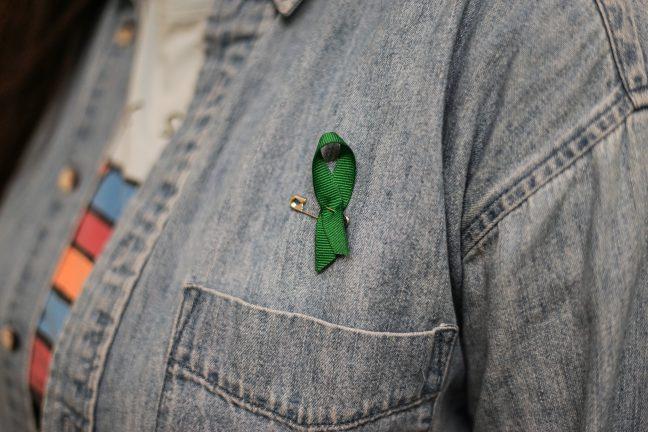I am a freshman in college who looks like a freshman in high school, but I’ve been attending college since I was ten years old, due to a strenuous fight with my mother. Little did I know, the effects that fight would increase my quality of my life, and perhaps even save it.
This was not college in the traditional sense — I went to what my therapist called “college for emotions,” which is how my mother talked me into attending counseling sessions after the loss of a loved one. Even after the grief faded, I still took advantage of what my therapist had to offer. I wanted to learn how to live my life to the fullest, despite stress, negativity, miscommunication and chemical imbalance — struggle pills can only do so much.
Stigma told me that counseling was for weirdos, the basket cases and the extremely ill. But if one equates counseling to attending university, the equation becomes much simpler. Higher education is not meant for us to quickly experience in order save the world after a hypothetical catastrophe. Rather, we came to the University of Wisconsin-Madison to learn the skills needed to start our careers and benefit society, hopefully to prevent the hypothetical catastrophe from ever happening.
The stigma against attending counseling and mental health care should be looked at the same way. When the reason for attending counseling sessions shifts from “solely need based” to “healthy and aimed at self-care,” we not only prevent mental breakdowns from ever happening, but we also make it easier for both neurodivergent and neurotypical people to shamelessly learn how to live a happy life.
The first step to shifting the stigma against counseling is to know that needing it does not make you an anomaly. 25 percent of young adults between the ages of 18 to 24 have a diagnosable mental illness and have been treated by a medical professional within the calendar year. Stress does not discriminate either — in the past year over 40 percent of college students reported having above average levels of stress, and feelings of hopelessness. The numbers do not lie — we are all in this boat together. By acknowledging how common these feelings are, it makes getting help less scary. If so many others can do it, why can’t you?
After acknowledging the problem, progressively treating it and preventing further spirals into a mental health crisis is the next step. Sadly, this is the step that students struggle with the most. While living on campus, 73 percent of students suffering from a mental illness had a mental health crisis. Only 32.4 percent of those students claim their university knew about their crises. These problems exist, but luckily, so do the resources on campus to treat and prevent them.
Regardless of what treatment you are looking for, University Health Services can affordably fulfill your needs, completely cost free. Let’s Talk is an appointment-free option meant to talk about a variety of topics, whether it be sadness, relationship troubles, or financial issues. The informal atmosphere and the variety of locations across campus make this program the easiest way for a quick emotional tune-up when you are feeling low.
UHS provides multiple other resources to maintain mental wellness, whether it be through individual counseling, couples counseling, psychiatric services or group counseling. Group counseling is especially effective in creating a supportive community of people who struggle with the same issues, which makes them feel smaller and less threatening.
There are also resources for addressing mental health concerns brought on by the campus environment. Alcohol and other drug assessments are done free of charge, and involve personalized treatment plans that provide students with healthy coping mechanisms. Eating disorder assessments are also available, as is information for diagnoses and how to positively intervene for a friend in need. There are also various resources for the LGBTQ+ community, including gender identity consultations and resources for trans care and name and gender records.
If anything, the amount of resources on campus for mental health upkeep proves that no student is alone. Acknowledging the problem is only one part of the equation, however. In order to make our Wisconsin experience the best four years of our lives, we need to constantly be maintaining and caring for our bodies, both physically and mentally. By normalizing mental health care and attending counseling sessions, we make self care something that everyone wants to do, regardless of the level of stress or chemical imbalances. College is a pivotal time in our lives, where we learn who we are and what we are meant to do. So whether you are here to study engineering, biology, English or anything in between, make one thing certain — that you make time to attend college for emotions.
Abby Steinberg (abigailsteinberg@outlook.com) is a freshman majoring in political science and intending to major in journalism


